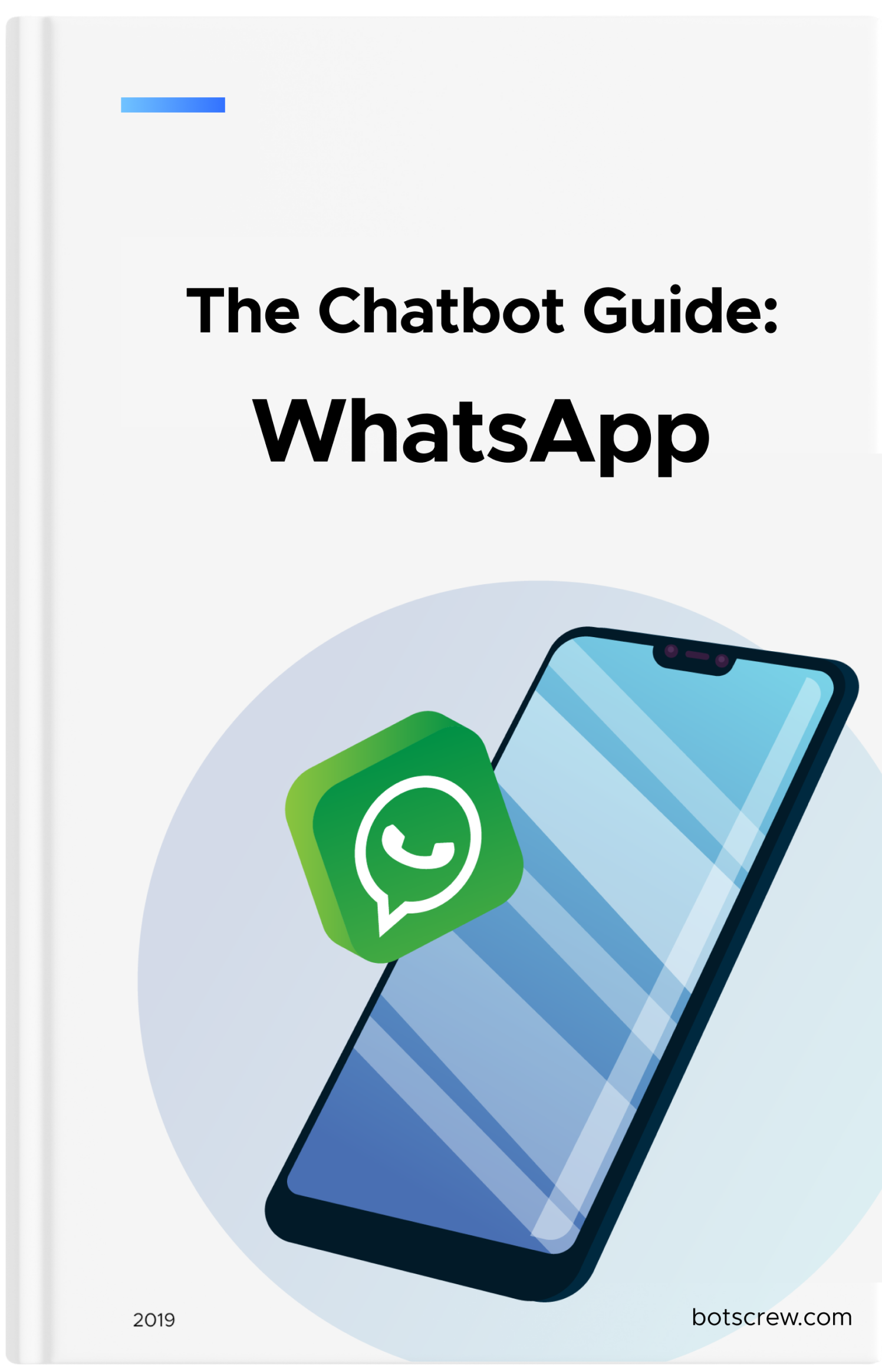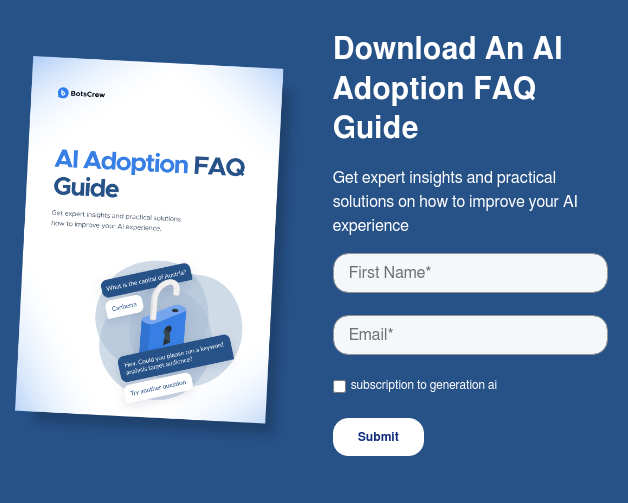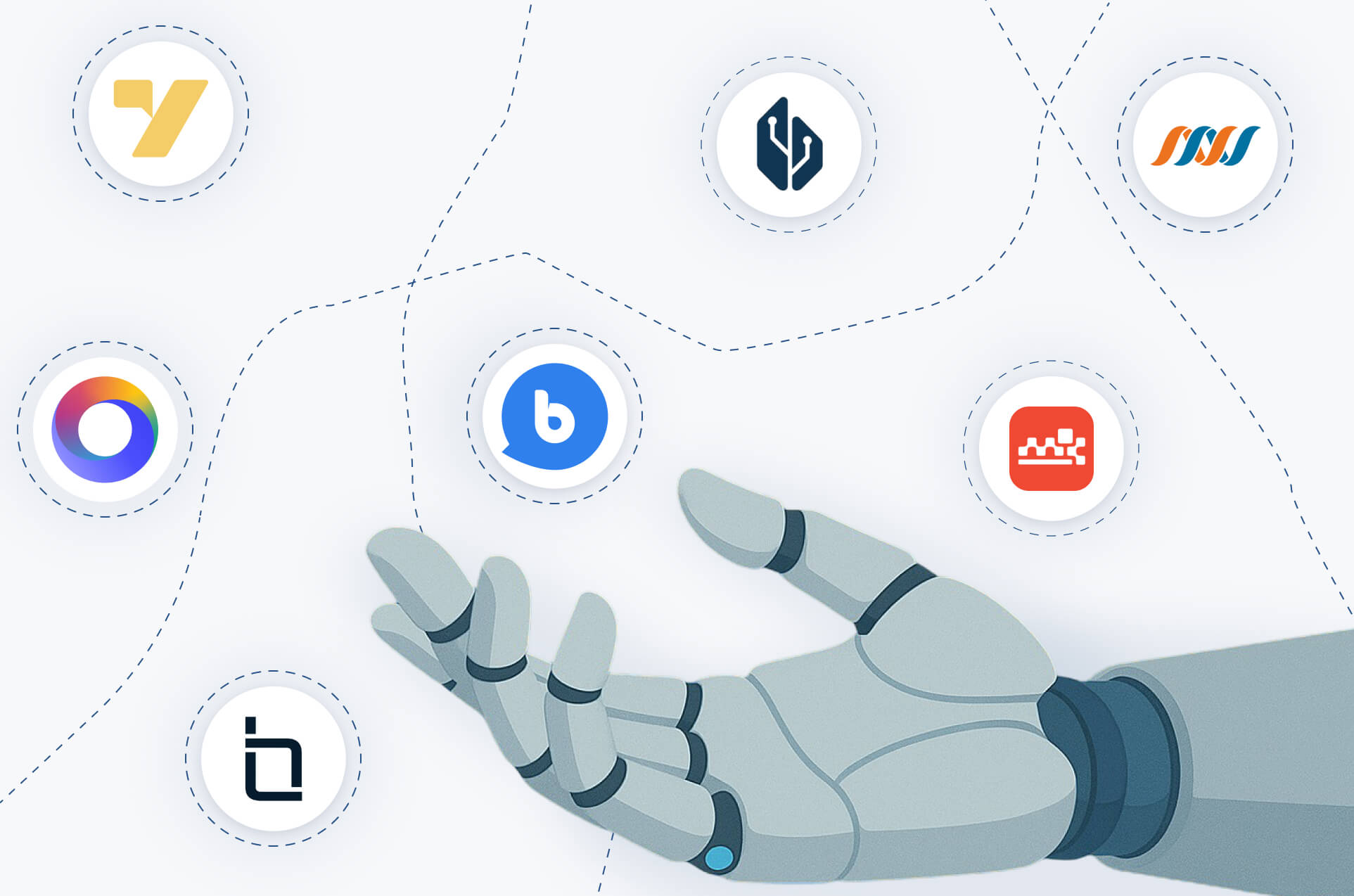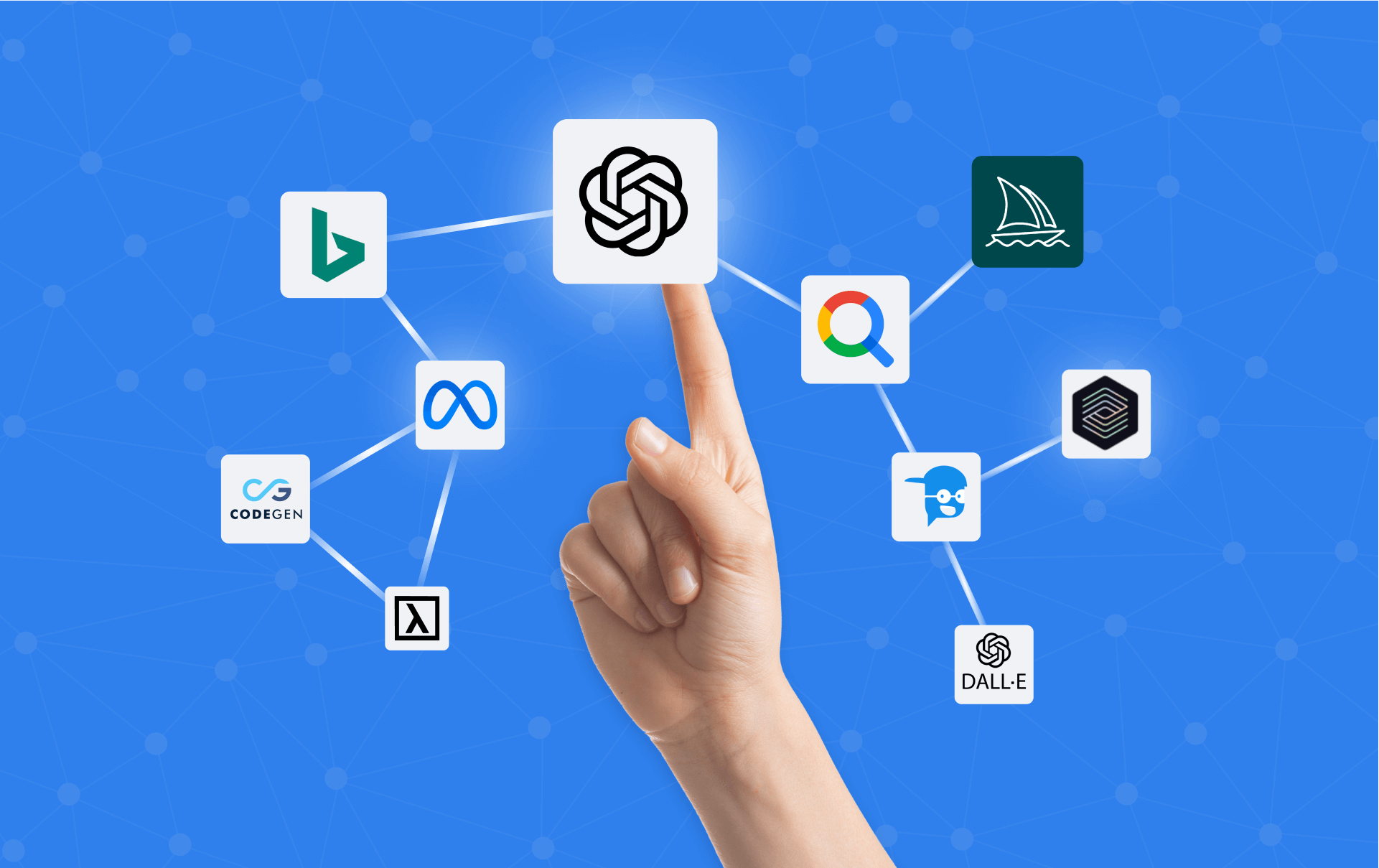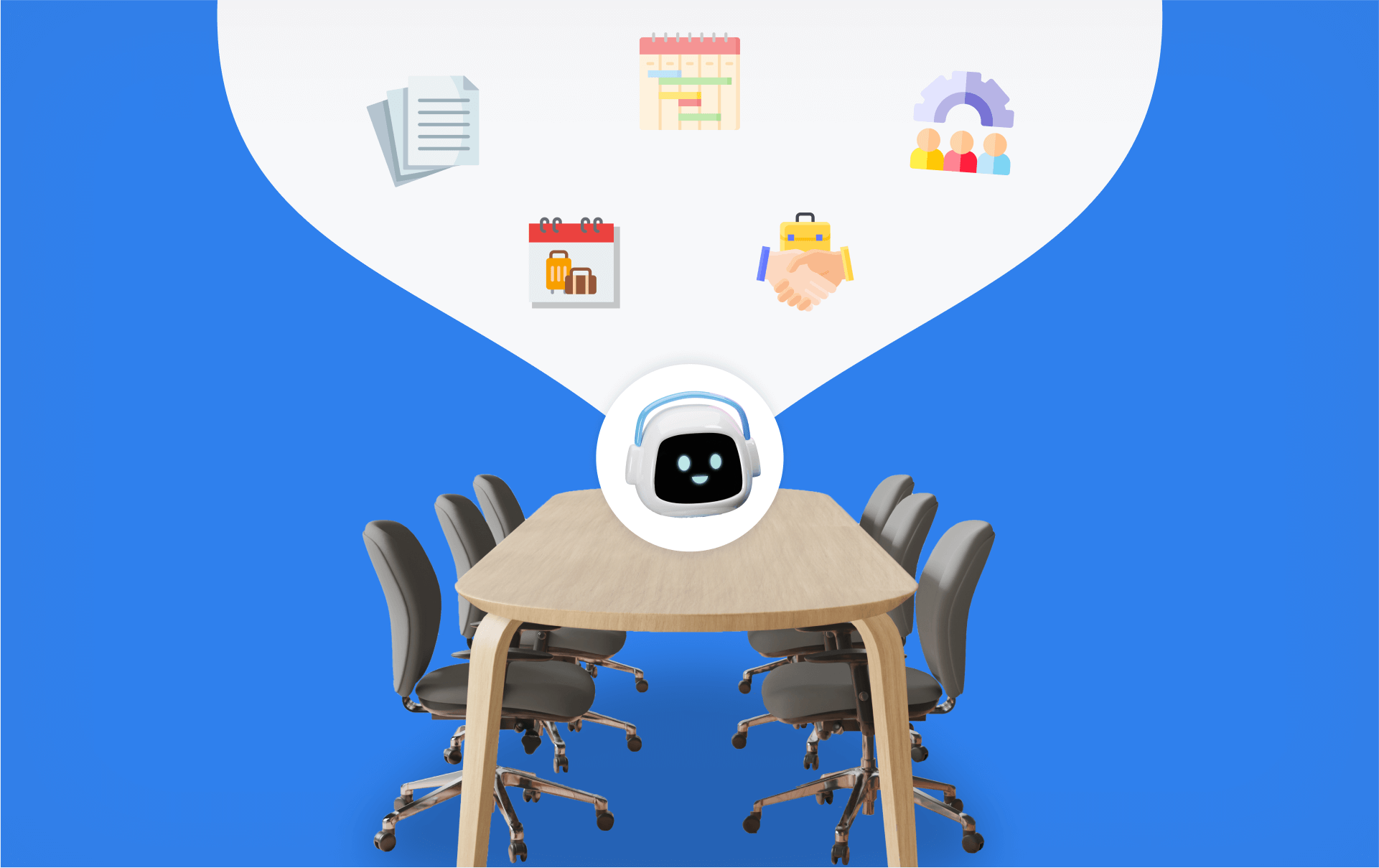AI in Enterprise: Use Cases, Benefits & Implementation Framework
Generative AI is revolutionizing how enterprises operate, unlocking new levels of efficiency, insight, and innovation. This article explores the top use cases, benefits, and a practical framework for successfully implementing AI in enterprise environments.
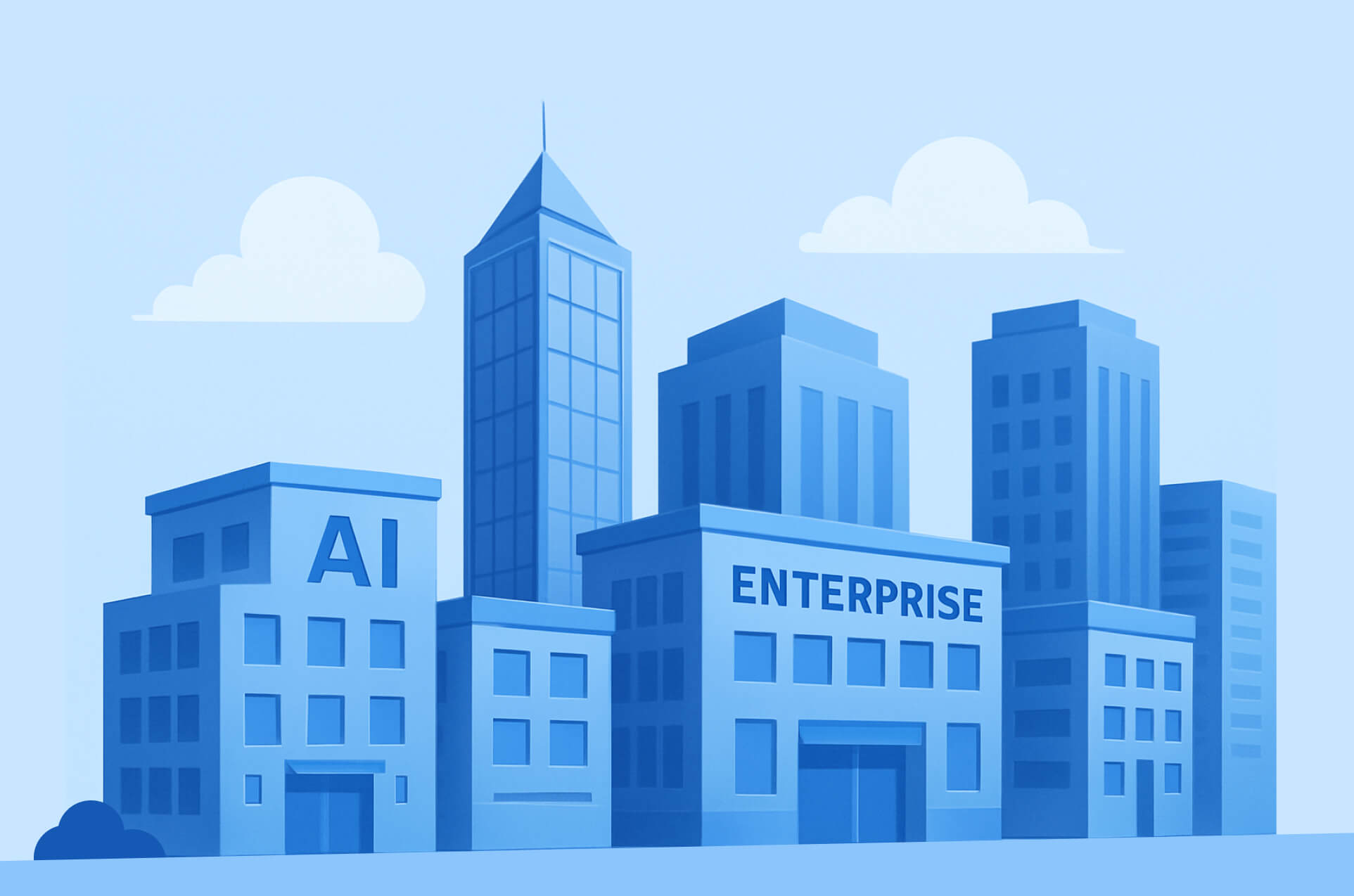
Generative AI is rapidly transforming how enterprises operate, innovate, and compete. No longer confined to niche applications, AI now plays a central role in driving operational efficiency, accelerating decision-making, and enabling entirely new business models.
For enterprise leaders, understanding how to effectively implement and scale generative AI is critical to staying ahead in an increasingly digital economy.

This article explores the practical use cases, strategic benefits, and implementation frameworks of generative AI tailored for the enterprise. Whether you're exploring AI-driven enterprise search, automation, or custom agents, this guide will help you shape a scalable, secure, and results-oriented enterprise AI strategy.
What Is Enterprise AI and Why It Matters
Enterprise AI refers to the strategic implementation of artificial intelligence across large organizations to enhance decision-making, streamline operations, and unlock hidden value within data.
With the rise of generative AI, companies now have access to tools that go beyond traditional automation—enabling AI systems to generate content, summarize information, and interact contextually like never before. This evolution positions AI as a foundational layer in modern enterprise strategy.

Enterprise AI is not limited to one function or department; it spans across domains such as marketing, customer service, finance, HR, legal, and R&D. By embedding AI into the core of enterprise operations, organizations can create intelligent systems that learn, adapt, and improve over time.
The result?
Greater efficiency, smarter insights, and a more agile enterprise that can respond to market changes rapidly.
How Generative AI Is Changing the Enterprise Landscape
Generative AI brings a new level of intelligence to enterprise systems. Unlike rule-based automation or predictive analytics, generative AI models can create human-like content, understand intent, and adapt to varied contexts. This means companies can now build AI agents that not only process data but also act on it with reasoning and autonomy.
These capabilities transform the role of AI from a back-office support tool to a front-line contributor. Enterprises are using generative AI to power digital assistants, automate email responses, summarize lengthy reports, create dynamic knowledge bases, and more. Its ability to understand and generate language, code, images, and structured data makes it one of the most versatile technologies ever introduced into enterprise environments.
Moreover, generative AI integrates with other AI systems such as machine learning models, robotic process automation (RPA), and enterprise resource planning (ERP) platforms. This integration enables end-to-end automation, where decisions and actions can be fully handled by AI agents with minimal human intervention.
of employees’ time is spent on work activities that current generative AI and related technologies have the potential to automate.
Real-World Use Cases of Generative AI in Enterprises
Generative AI is already delivering tangible value across departments in forward-thinking enterprises. Below are real-world use cases that showcase how organizations are using AI to streamline operations, enhance productivity, and drive smarter decision-making.
Intelligent AI Agents for Support and Admin Tasks
Generative AI agents can function as intelligent assistants for HR, IT, legal, and finance. These AI-powered assistants are capable of answering policy-related questions, generating internal documents, providing 24/7 support, and automating repetitive workflows. By offloading high-volume, low-complexity tasks, AI agents help reduce operational bottlenecks and free human teams for higher-value work.

For example, an enterprise HR chatbot can guide employees through onboarding, explain benefits, and answer payroll questions. In IT, AI agents can troubleshoot common technical issues, reset passwords, and escalate unresolved problems.
📌 Example Use Cases:
- HR: Guide new hires through onboarding, answer questions about benefits, submit PTO requests, and provide payroll status.
- IT: Troubleshoot login issues, reset passwords, guide VPN setup, and escalate unresolved tickets to support teams.
- Finance: Explain reimbursement policies, track expense approvals, and assist in invoice processing.
- Legal: Retrieve policy documents, auto-draft contracts or NDAs, and track compliance milestones.
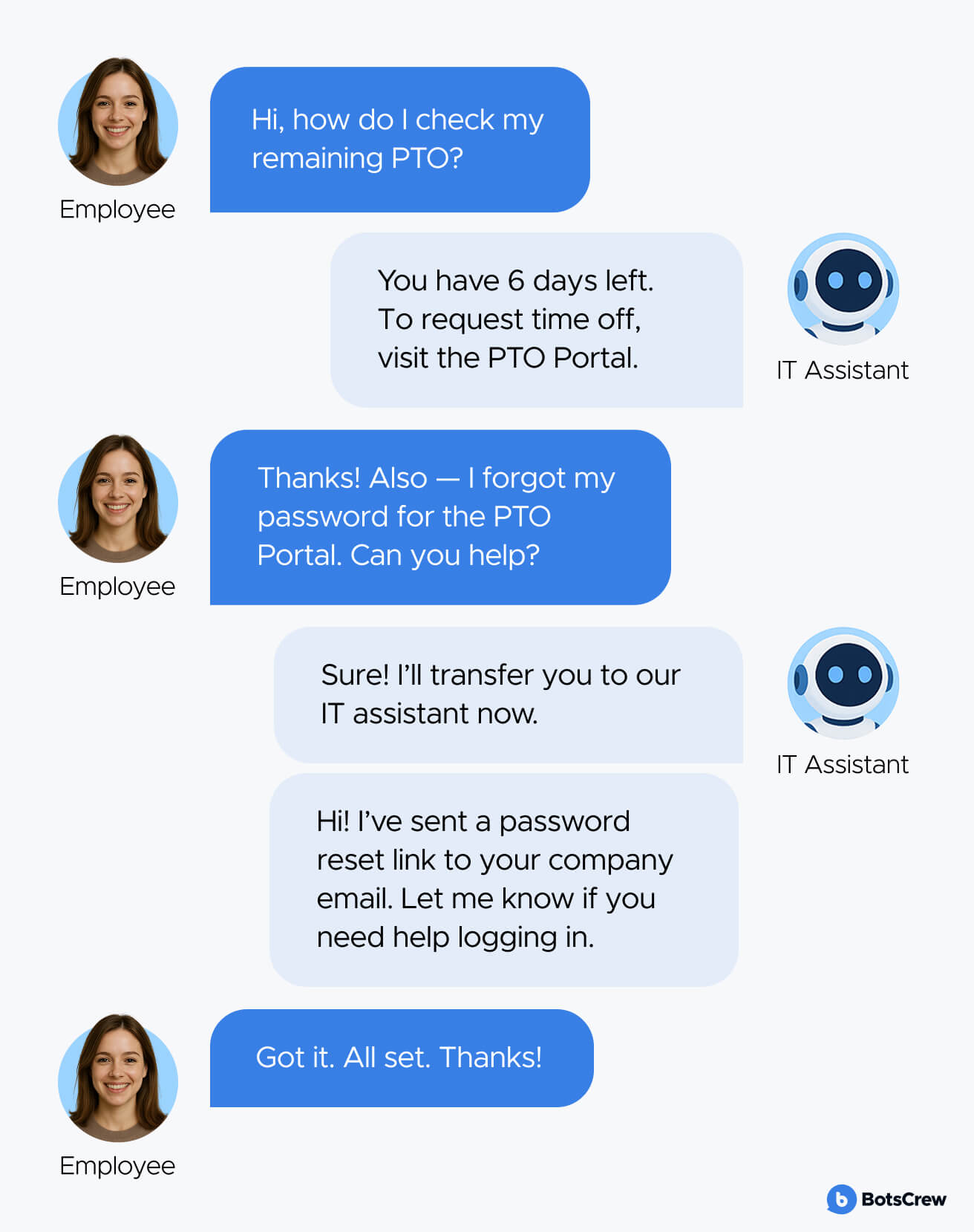
Enterprise Search and Knowledge Management
Traditional enterprise search often fails to deliver relevant results due to fragmented systems. Generative AI enables context-aware, semantic search across multiple databases and tools, turning scattered knowledge into instantly accessible insights.
Imagine a sales rep querying "Show me the last 3 winning proposals for logistics clients in North America." Generative AI can fetch and summarize those documents, even if they exist across SharePoint, Google Drive, Salesforce, and an internal wiki.
📌 Case in Point: Kravet’s Internal AI Assistant
Kravet Inc., a global home furnishings company, partnered with BotsCrew to build an internal AI assistant that could retrieve knowledge from vast, unstructured datasets—including 1,000+ product files, blog posts, and inventory systems. Initially, the AI struggled with outdated, conflicting content and data locked in hard-to-read formats.
Through custom tweaks (like using RAG, tuning model settings, and cleaning the data), BotsCrew improved the AI’s answer accuracy from under 60% to nearly 90%. The assistant now helps employees across departments—sales, HR, and supply chain—quickly find product specs, check inventory in real-time, and even draft client emails.
The result? Faster workflows, reduced manual lookups, and growing adoption across Kravet’s 1,000+ global workforce.
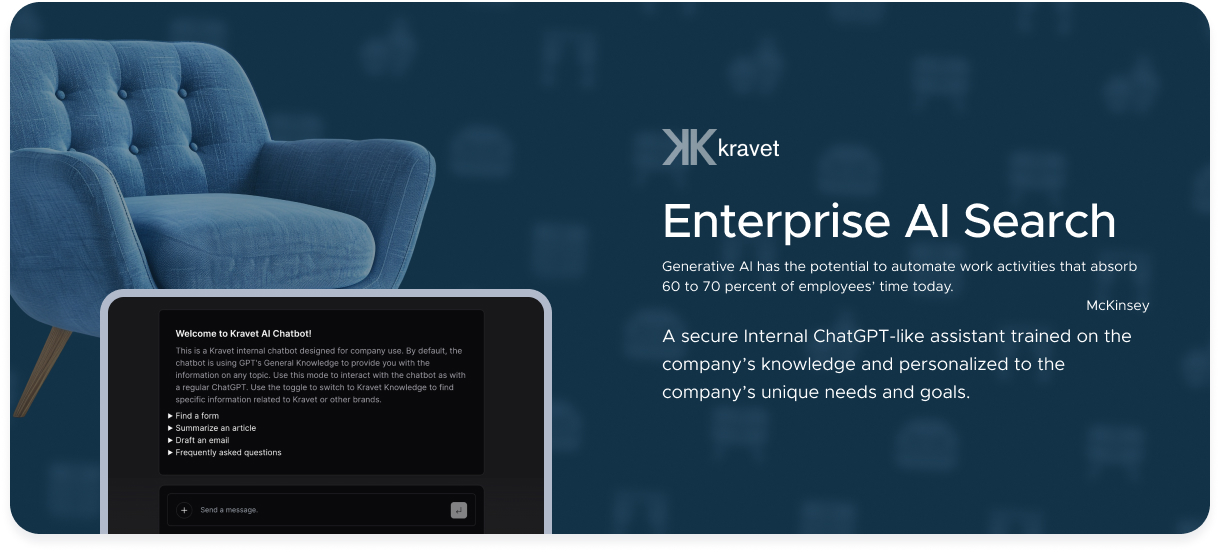
Automated Content Generation
From legal summaries to marketing content, generative AI can create accurate, contextually relevant documents. This accelerates time-to-market and ensures consistency across enterprise communication.

Examples include:
- Drafting contracts and NDAs
- Writing personalized customer emails
- Generating product descriptions
- Creating compliance documentation based on regulation updates
- Creating SEO-optimized blog posts and landing pages
📌 Case in Point: AI Content Writer for Marketing Teams
A global hiring platform struggled with slow content production—each article took 8–16 hours, inflating costs and limiting output. To solve this, they implemented a generative AI agent that analyzed keywords, generated article drafts, and posted content after review.
In just two months, results were dramatic:
- 5× more articles produced per writer
- 90% faster content creation (from 8 hours down to 1.5)
- 1150% increase in quarterly publishing targets—from 8 to 92 articles per writer
This AI assistant became a game-changer for marketing operations, cutting costs and scaling content output exponentially.
AI Data Analysts & Decision Support
Generative AI isn’t just about support—it’s becoming a critical tool for data analysis and decision-making. AI Data Analysts can sift through thousands of rows in spreadsheets, extract patterns, and deliver insights via natural language.
📌 Example Use Cases:
- Summarizing sales trends by region or product line
- Identifying anomalies in financial reports or customer behavior
- Explaining KPI performance changes across departments
- Running “what-if” analyses on operational decisions
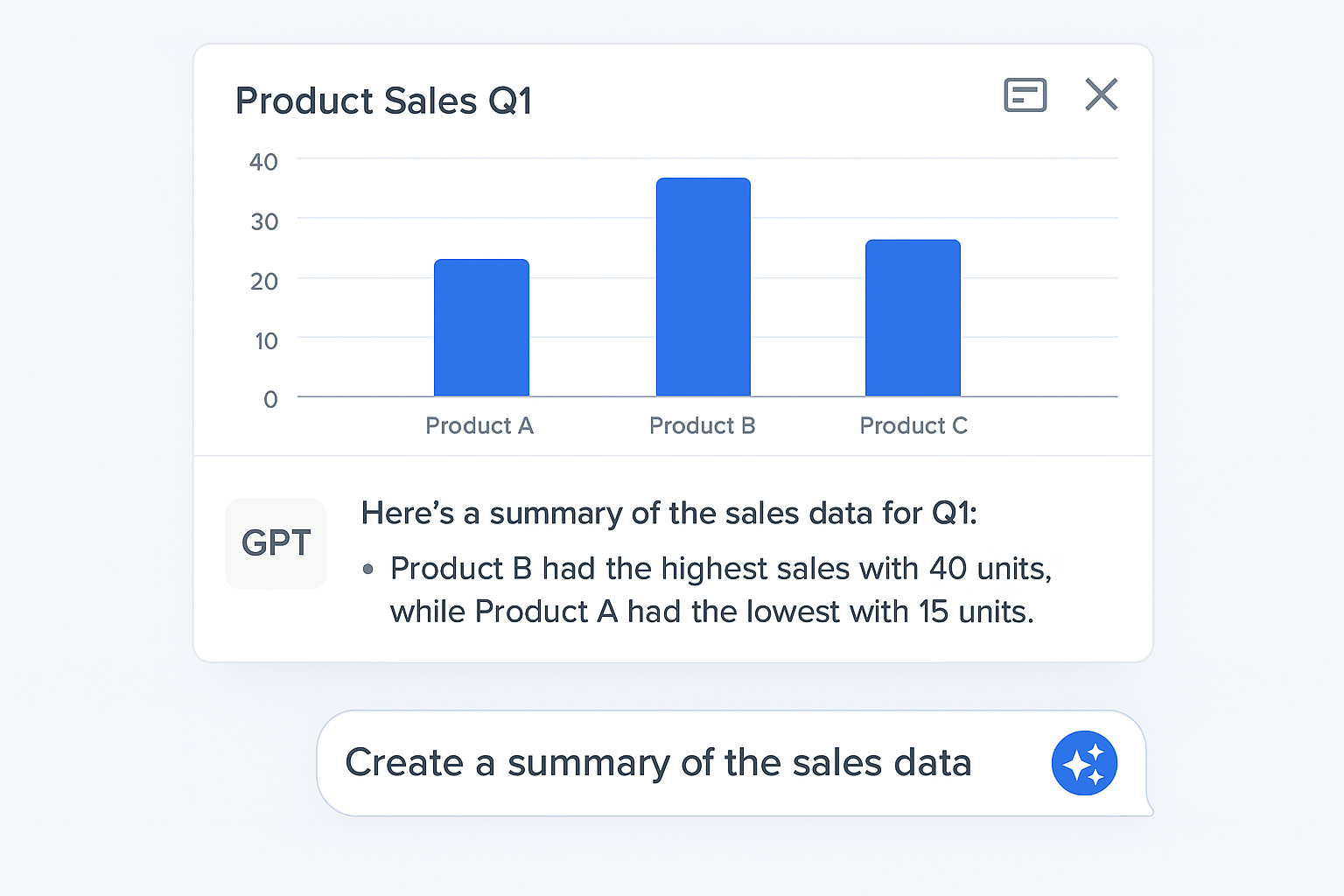
An AI Data Analyst can instantly pull revenue data from multiple sources, detect anomalies, and summarize the answer in plain English—no dashboard or SQL required.
📌 Case in Point: AI Analytics Assistant for Faster Business Insights
A global enterprise managing vast datasets across supply, sales, and marketing needed a faster way to access business insights. Traditional data analysis processes took between 4 to 48 hours, delaying critical decisions.
To solve this, BotsCrew developed a secure AI analytics assistant that integrates with tools like Microsoft Teams and Power BI. The assistant can run calculations, compare datasets, and present insights in natural language, SQL, or visual charts—all within seconds, not days.
It works seamlessly with both static (MySQL) and dynamic (MongoDB) datasets and is used directly by non-technical teams to retrieve insights like sales breakdowns, performance comparisons, and forecast reports.
Impact:
Business users now retrieve analytical insights in under 30 seconds, accelerating decision-making and reducing the need for manual analyst involvement.
Process Optimization & Workflow Automation
By combining RPA with generative AI, enterprises can automate complex workflows such as contract review, claims processing, and internal audits—freeing employees to focus on strategic tasks. These AI systems can handle end-to-end business processes across departments, enabling faster cycle times and reducing human error. The AI can interpret unstructured data, make decisions, and generate outputs autonomously.

Use cases include:
- Finance: Automatically flag unusual transactions and generate audit trails.
- Insurance: Validate claims and generate summary reports from scanned forms or emails.
- Healthcare: Auto-generate regulatory compliance reports based on EHR data.
- Procurement: Draft purchase requests, confirm inventory, and alert for reordering.
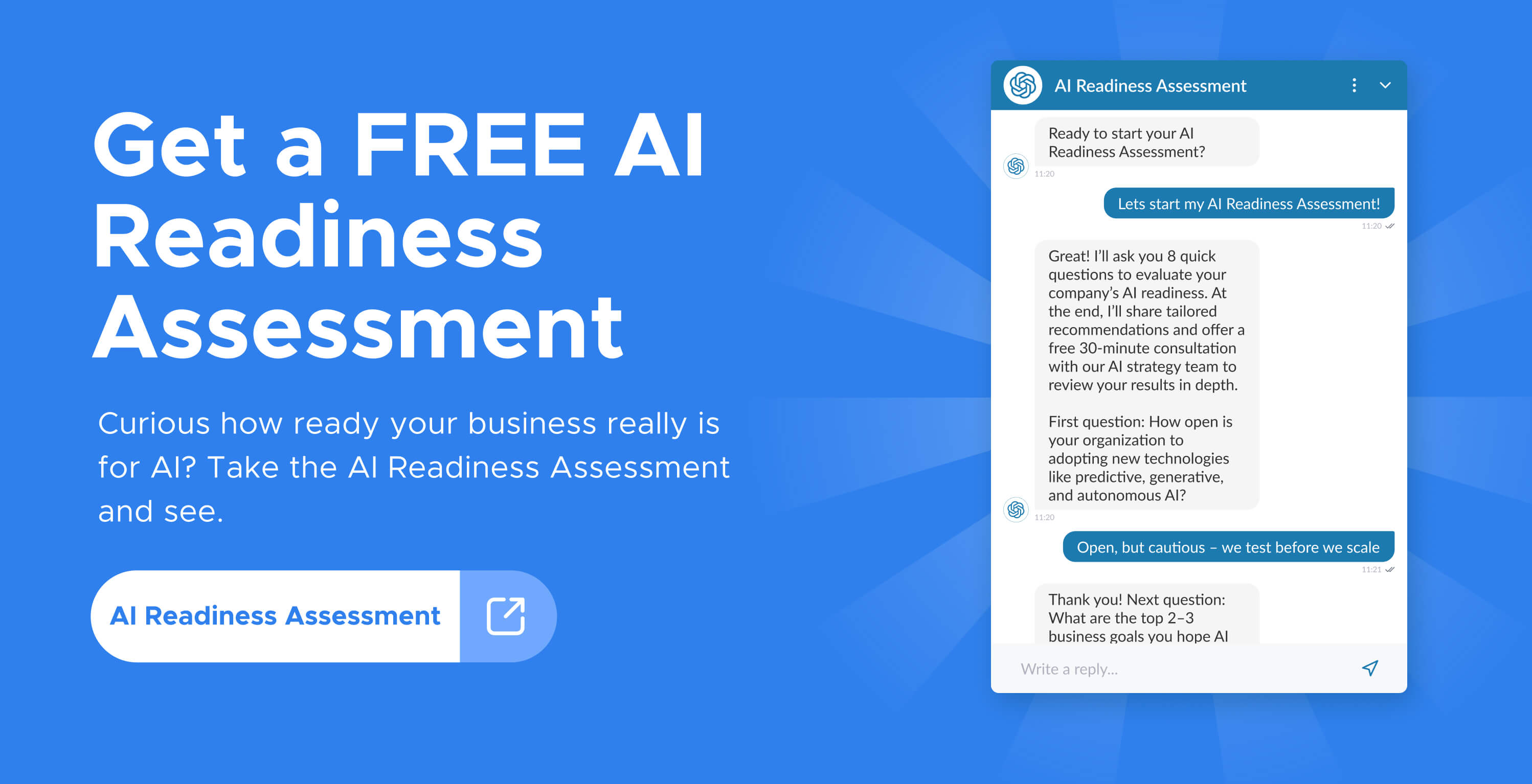
Key Benefits of Generative AI in Enterprise Environments
Generative AI in enterprises provides both tactical and strategic advantages. On a day-to-day level, it boosts productivity and reduces manual workloads. Strategically, it enhances innovation, improves data-driven decision-making, and strengthens competitiveness. Benefits include:
Cost savings through automation
Generative AI reduces operational costs by automating processes in customer support, HR, legal, finance, and IT. From drafting emails and knowledge base articles to processing claims and generating reports, AI handles repetitive, rules-based tasks with ease.

A 2023 study by McKinsey estimated that generative AI could generate $400 billion to $660 billion in annual value for the retail and consumer packaged goods industry by automating key functions like customer service and inventory management. Similarly, in the banking sector, generative AI is projected to add $200 billion to $340 billion in value by automating tasks such as regulatory reporting and fraud monitoring, representing 2.8 to 4.7 percent of the industry’s annual revenues
Enhanced employee productivity
Generative AI in enterprise empowers employees to do more in less time by eliminating information silos and streamlining workflows. AI agents deliver answers instantly, draft content, and complete data tasks—saving hours every week. By reducing time spent on mundane tasks, generative AI empowers employees to engage in creative and strategic work, amplifying their impact within the organization.
A 2023 study by the Nielsen Norman Group found that generative AI improves employee performance by an average of 66% across tasks like business writing, programming, and customer support, with the most significant gains observed in complex tasks and among less-skilled workers. Additionally, a November 2024 survey by the Federal Reserve Bank of St. Louis reported that workers using generative AI saved an average of 5.4% of their work hours weekly, equivalent to 2.2 hours for a 40-hour workweek.
Better and faster decision-making
Generative AI can analyze vast amounts of structured and unstructured data from different systems (e.g., CRMs, ERPs, spreadsheets) and provide contextual recommendations. This allows leaders to make better-informed decisions, faster.
According to a 2024 ZoomInfo report, 61% of business executives using AI noted that it helps identify opportunities in data that would otherwise be missed, enhancing strategic decision-making.
These capabilities reduce decision-making latency and improve accuracy, giving enterprises a critical edge in fast-paced markets.
Scalable knowledge management
Generative AI enables organizations to turn scattered documentation into a centralized, intelligent knowledge base. With retrieval-augmented generation (RAG) models, AI agents can access and surface answers from internal wikis, PDFs, Notion docs, and more.
A 2024 Deloitte report highlighted that 24% of enterprises are adopting AI for meeting summarization, which enhances knowledge retention and accessibility by automating note-taking and distilling key takeaways. These knowledge bases grow smarter as they process more data, reducing the time employees spend searching for information and improving organizational efficiency. Scalable generative AI enterprise search solution ensures that institutional knowledge is preserved and readily accessible, driving long-term operational excellence.
Competitive differentiation via innovation
Generative AI empowers enterprises to move faster—launching products, serving customers, and experimenting with new ideas ahead of competitors. Early adopters gain defensible advantages in cost-efficiency, personalization, and time-to-market.
A 2025 Deloitte report noted that 26% of enterprise leaders are exploring agentic AI—systems capable of autonomous decision-making and task execution—to drive competitive differentiation. Moreover, a 2023 McKinsey survey indicated that 75% of organizations expect generative AI to cause significant or disruptive changes in their industry’s competition within three years, underscoring its role in reshaping market dynamics.
By adopting an enterprise AI strategy early, companies can establish defensible advantages, positioning themselves as industry leaders in innovation and efficiency.
A strategic shift is emerging, from technology catch-up to competitive differentiation with GenAI. Beyond the IT function, organizations tend to focus their deepest GenAI deployments on parts of the business uniquely critical to success in their industries. Deloitte
A Proven Framework for Enterprise AI Implementation
To unlock the full value of generative AI, enterprises must follow a structured implementation path. Here’s a practical framework that aligns AI with business value:
Step 1: Define Strategic Business Objectives
Identify specific business goals where generative AI can provide measurable outcomes. These could include improving customer support, reducing churn, increasing operational efficiency, or accelerating time-to-insight.
Step 2: Identify High-Impact Use Cases
Prioritize use cases based on value, feasibility, and readiness. Start small with contained pilots (e.g., automating internal FAQs or search functions) and scale as ROI becomes clear.
Step 3: Assess AI Readiness
Evaluate your current AI readiness, tech stack, data infrastructure, and organizational culture. Consider:
- Data availability and quality
- Cloud capabilities and security
- Existing automation tools
- Stakeholder alignment and support
Step 4: Choose the Right Enterprise AI Architecture
Select platforms that support large language models (LLMs), fine-tuning, integrations, and real-time response capabilities. Evaluate the trade-offs between open-source vs proprietary systems.
Step 5: Build, Buy, or Partner
- Build if you have deep internal AI expertise.
- Buy if time-to-value is critical.
- Partner with an AI agency to design custom solutions tailored to your enterprise needs.
Step 6: Pilot, Measure, and Scale
Deploy AI agents in a controlled environment. Track key performance indicators (KPIs) such as response accuracy, time saved, customer satisfaction, or compliance improvements. Use this data to guide enterprise-wide rollout.
Step 7: Ensure Governance and Continuous Improvement
Set up frameworks for model monitoring, human-in-the-loop review, bias detection, and compliance reporting. Make continuous learning and refinement part of your AI lifecycle.
Need help building enterprise-ready AI agents?
Partner with BotsCrew to design and deploy custom generative AI solutions that scale with your business.
Overcoming Challenges with Enterprise AI Integration
Despite the promise, implementing an enterprise AI strategy comes with challenges. These include poor data hygiene, system integration complexity, internal resistance, and regulatory compliance. Enterprises must address these proactively:
- Change management: Communicate clearly with teams, involve users early, and provide training.
- Technology alignment: Ensure your tech stack can handle AI workloads and integrate seamlessly.
- Security and privacy: Protect sensitive data, especially in industries like healthcare, finance, and legal.
- Ethical governance: Set boundaries for AI usage, ensure explainability, and maintain human oversight.
Final Thoughts: Building a Future-Ready Enterprise with Generative AI
Generative AI is no longer optional for enterprises that aim to lead in efficiency, innovation, and customer experience. By adopting a strategic framework and focusing on real business outcomes, organizations can turn generative AI into a long-term competitive advantage.
The path to enterprise-wide adoption begins with clarity: know your objectives, select the right use cases, and partner with experts when needed. Start small, learn fast, and scale intelligently.
Ready to implement an enterprise AI strategy in your organization? Start with a discovery phase to identify high-impact use cases and build a roadmap to success. Let our team of AI experts help you design and deploy AI agents tailored to your enterprise needs.
Ready to bring AI into your enterprise?
Start with a free discovery call to identify high-impact use cases and build your custom AI roadmap.




